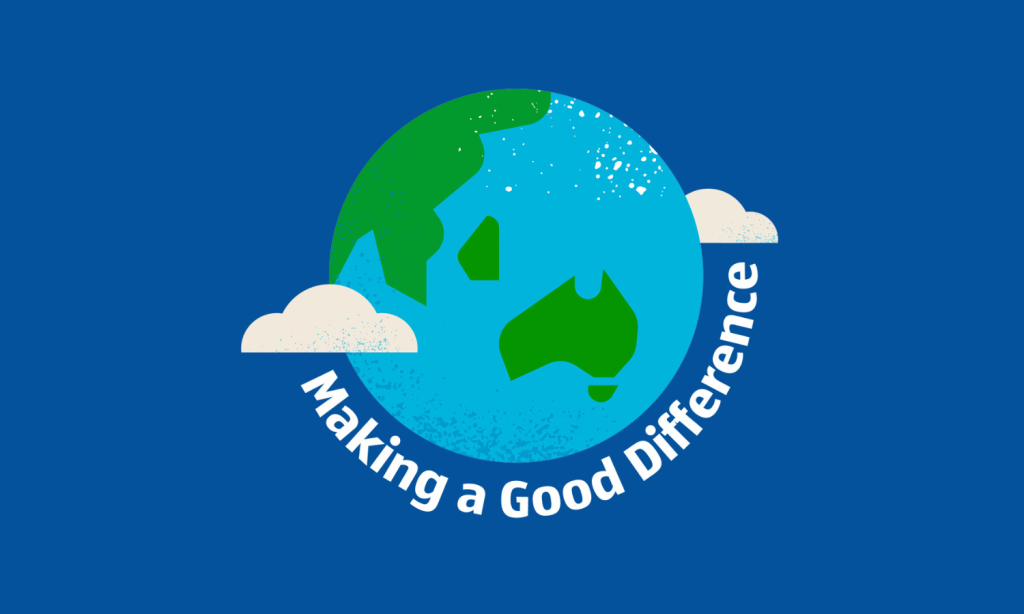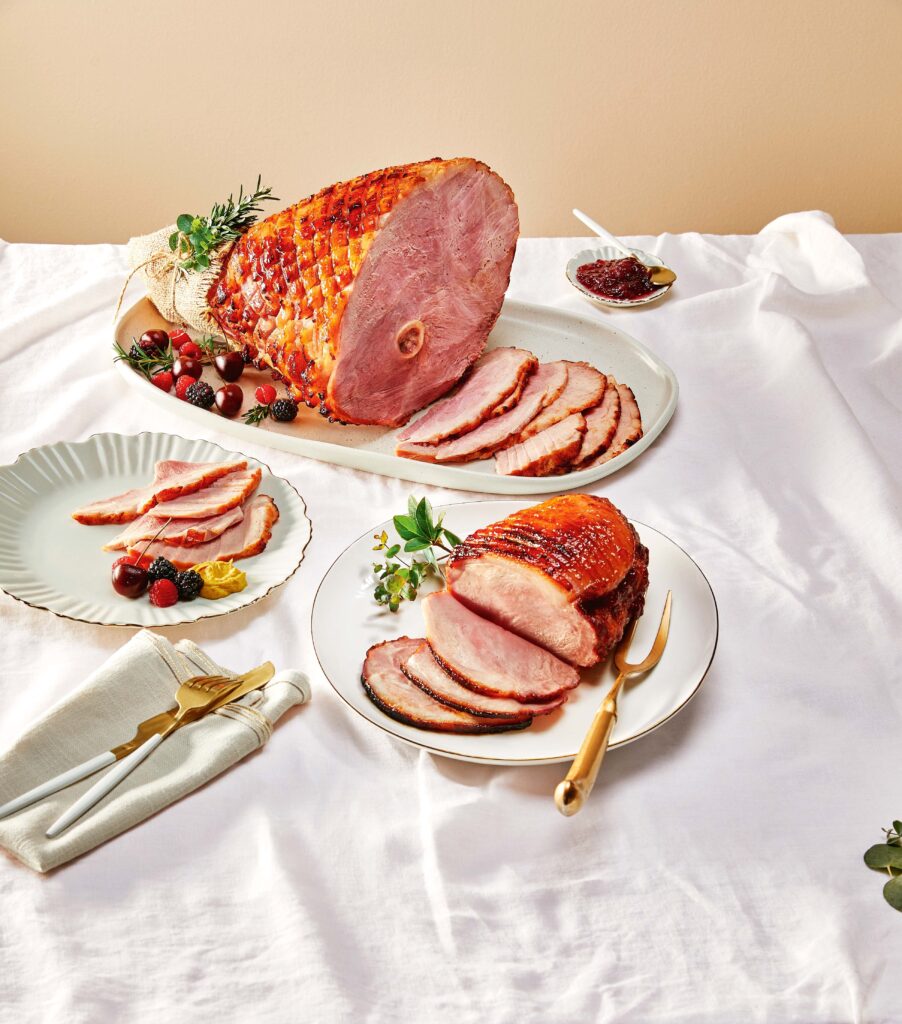ALDI Australia today announces significant developments towards its national sustainability commitments in its Making Sustainability Affordable report. The report unveils that ALDI is Making a Good Difference via a 12 per cent reduction in plastic packaging since 2019, preventing a further 5,500 tonnes of plastic from entering circulation in 2022; an 82 per cent diversion of waste to landfill; and an expansion of its chiller door trial to Victoria, Queensland, and Western Australia after success in New South Wales.
The release of the Making Sustainability Affordable comes as ALDI sees increasing customer growth as Australians assess their budgets and look to make changes to their household spending. New data reveals that customers are shopping at ALDI stores more often in the second quarter of 2023 (+5.2 per cent, year-on-year).*
Daniel Baker, ALDI Australia’s Sustainability Director, says that both new customers, and current customers shopping at ALDI more often, can be assured that when they spend their hard-earned dollars on groceries at ALDI, it doesn’t come at the expense of the planet. “Every customer that walks through our doors can rest assured that doing the right thing for the planet and saving money at the till, aren’t mutually exclusive. This is the epitome of our ambition to Make a Good Difference.”
“As a business, we are fundamentally focused on delivering for our customers, and we are keenly aware many of them are feeling the pinch right now. For us, we won’t be beaten on the cost of the weekly shop, but that simply doesn’t come at the expense of our commitment to our ambitious sustainability initiatives,” he said.
ALDI cuts plastic packaging by more than 5,500 tonnes in 2022
Throughout 2022, ALDI made a number of innovations to its product packaging to transition to more sustainable options. Driving these changes is the commitment made in 2019 by the retailer to reduce plastic packaging by 25 per cent by 2025. ALDI is now almost halfway to achieving this commitment, recording a 12.2 per cent reduction in plastic packaging across its range of exclusive brands since 2019. This reduction is equivalent to preventing a further 5,500 tonnes of plastic from entering circulation across the year.
This commitment to reducing plastic packaging has resulted in innovative changes to customers’ favourite products:
- No tray, no worries: Flow-wrap packaging (no tray) for ALDI’s Jindurra Station two-star beef mince cuts plastic by 70 per cent compared to traditional packaging alternatives.
- paper power: Transitioning ALDI’s everyday range of standard batteries from plastic to paper packaging, resulting in the elimination of approximately 17 tonnes of plastic waste.
- ‘See ya!’ Styrofoam: ALDI will start phasing out Styrofoam noodle cups from stores later this year, replacing them with a paper-based recyclable alternative.
“It’s difficult to ignore the negative impact plastic waste can have on our environment. We have a responsibility to reduce our use of plastic packaging, and this is a responsibility we take very seriously at ALDI. In the same way we work with our supplier partners to ensure our top-notch product quality and affordable prices, we also work with them to innovate our packaging to ‘design-out’ plastic,” Mr Baker says.
Sustainability is at the forefront of the in-store shopping experience
In recent months shoppers have seen some of the ways ALDI has made a Good Difference in stores, from the nationwide removal of its 15c reusable plastic bags, through to the trial of chiller doors in a select number of stores across New South Wales, this is all part of ALDI’s ongoing commitment to reducing its impact on the environment.
The New South Wales chiller door trial revealed a potential reduction in refrigeration energy usage of approximately 30 per cent. After the success of this trial, ALDI is expanding the trial to retrofit chiller doors in 15 additional stores across Victoria, Queensland, and Western Australia.
“You wouldn’t leave your fridge door open at home. Data shows that there are significant energy savings seen in our stores when we put the doors on our chillers, and even though we are powered by 100 per cent renewable electricity, we still are looking for ways to innovate in stores to reduce our electricity consumption. Most households would be aware of the rising electricity costs, so one way we can keep our prices low, is by keeping our expenses low. It’s good business, but ultimately good for the planet,” Mr Baker said.
ALDI fights food insecurity, diverting more than 80 per cent of potential waste from landfill
ALDI’s commitment to send zero waste to landfill by the end of 2025 has always been at the forefront of its sustainability journey. In its Making Sustainability Affordable report, ALDI records an 82 per cent diversion of waste from landfill.
For ALDI, this commitment goes hand-in-hand with its food rescue program, which connects ALDI’s stores and distribution centres to partner organisations. ALDI contributed the equivalent of 8.75 million meals in 2022, supporting vulnerable community members by helping to put food on their tables.
Mr Baker explains that ALDI rapidly grew its footprint of food rescue partners in 2022 in response to a growing need in the community, and to reduce food waste:
“At a time when household budgets continue to face very real pressures, it’s critical ALDI is not only delivering on our promise to provide Australia’s lowest priced groceries, but that we’re giving back to help those who are struggling. Further developing our food rescue program is enabling us to connect to more people in need across the country, as well as reducing food waste. We now partner with over 300 organisations, including Foodbank and OzHarvest who collect from ALDI’s stores and distribution centres nationally,” he confirmed.
CERTifed for our renewable achievement
ALDI was the first and is the only major Australian supermarket to fully power its operations using 100 percent renewable electricity. This achievement led to a reduction in ALDI’s operational emissions by 90 per cent in FY 2021 -2022, compared to FY 2020- 2021. ALDI’s renewable electricity commitment has now been verified by the Clean Energy Regulator’s Corporate Emissions Reduction Transparency Report.
Key stats from the Making Sustainability Affordable report:
- On track to achieve zero waste to landfill by 2025: 82 per cent diverted to date.
- On track to achieve 25 per cent reduction of plastic packaging by 2025: 12.2 per cent reduction to date.
- Actively reducing the amount of plastic packaging in our fresh produce range: 21.7 per cent reduction to date.
- Prioritising the reduction or replacement of difficult-to-recycle black plastic packaging: 55.3 per cent reduction to date.
- On track for ALDI exclusive brand packaging to be 100 per cent recyclable, reusable or compostable by the end of 2025: 83.3 per cent to date.
- Committing to an average of 50 per cent recycled materials across all of our packaging by the end of 2025: 32.2 per cent recycled content included to date.
- Phasing out reusable plastic shopping bag from stores and offering a paper bag option at the checkout. This move will stop around 888 tonnes of plastic from entering circulation per year.
ALDI’s approach to sustainability encompasses every part of its operations; “Making a Good Difference” is about acknowledging the responsibility ALDI has as a large organisation to give back to communities and positively contribute to the world around us. It is these commitments that contributed to ALDI being named Finder’s ‘Green Supermarket of the Year.’
“We are proud of our achievements and progress, but we know there’s always more to be done, which is why we’re committed to continuous improvement and being transparent with our customers as we deliver on our sustainability goals,” Mr Baker concluded.
You can read ALDI Australia’s Making Sustainability Affordable report, here.
*ALDI business data credited to Circana Shopper Panel, QTR to 16/07/2023.





